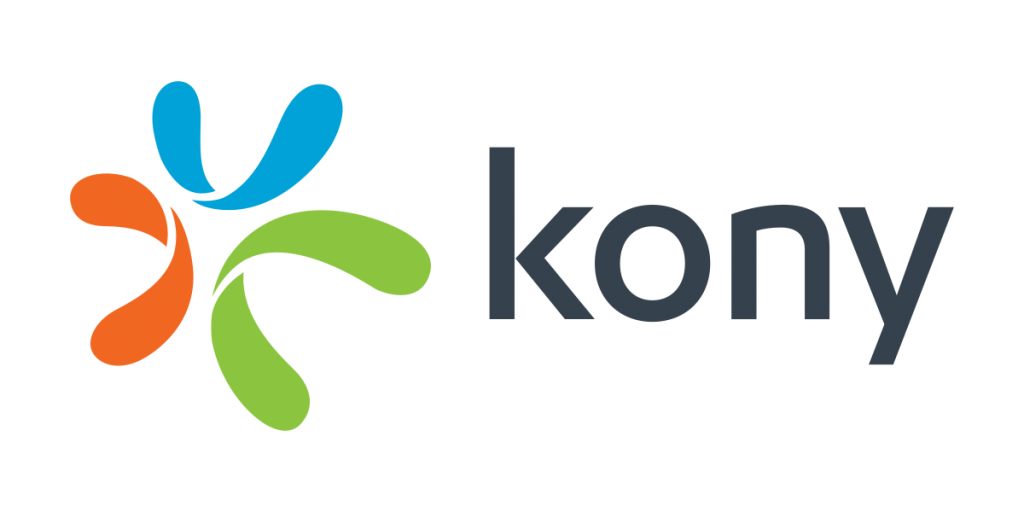
Top 5 Lesser-Known Mobile App Development Platforms
Jerry Wallis
15 min read

The mobile app development game is getting more competitive by the day, and staying ahead of the curve is becoming ever more challenging.
While popular platforms like Flutter, React Native and Xamarin dominate the iOS and Android app development market, there are still several lesser-known mobile app development platforms that offer unique features and advantages. These platforms provide developers with arguably just as many tools and resources as they need to create innovative and user-friendly apps.
But what are these hidden gems? In this article, we will explore the top 5 mobile app development platforms you may not have heard of but should definitely consider.
Laravel

Laravel is a popular open-source PHP framework used for web application development. Although Laravel is primarily focused on web development, it can be utilised as a backend framework for mobile app development as well.
Laravel is often overlooked in mobile app development, but it holds great potential, especially for skilled PHP developers. It adheres to the principles of elegance, simplicity, and readability throughout the mobile app development cycle.
As a free PHP framework, Laravel minimises the need for excessive coding, resulting in a faster app development process. Its streamlined approach also enables efficient error detection and resolution.
Advantages of Laravel in Mobile App Development
Robust MVC architecture
Laravel follows the Model-View-Controller (MVC) architectural pattern, which promotes a clear separation of concerns. This modular structure makes code organisation and maintenance more efficient, simplifying the app development and testing processes for mobile apps.
Extensive Ecosystem and Community Support
Laravel has a vast ecosystem of packages and libraries known as the “Laravel ecosystem.” These packages provide pre-built functionalities, such as authentication, database management, caching, and more. Additionally, Laravel has a large and active community, which means developers can find ample resources, tutorials, and support when building mobile apps.
Security Features
Laravel prioritises security and includes features like CSRF (Cross-Site Request Forgery) protection, secure routing, and input validation. These built-in security mechanisms help safeguard mobile apps against common vulnerabilities and protect user data.
Developer-friendly Syntax and Conventions
Laravel offers an expressive and elegant syntax that enhances developer productivity. It follows coding conventions and best practices, resulting in clean and readable code. The framework’s consistent syntax reduces app development time and allows developers to focus on building features rather than dealing with boilerplate code.
Disadvantages of Laravel in Mobile App Development
Limited native capabilities
As a backend framework primarily designed for web app development, Laravel may not provide direct support for accessing native device features in mobile apps. Developers may need to utilise additional plugins or libraries to integrate native functionalities into their applications.
Performance Considerations
Laravel, like any framework, introduces an additional layer of abstraction, which can impact app performance to some extent. Mobile apps requiring high-performance or real-time capabilities might face performance limitations compared to fully native solutions.
Learning Curve for Non-PHP Developers
Laravel is based on PHP, so developers with little or no experience in PHP might face a learning curve when adopting Laravel for mobile app development. Familiarity with PHP is beneficial for leveraging the full potential of Laravel’s features and functionalities.
Deployment complexity
Deploying Laravel-based mobile apps can involve additional configuration and setup steps, particularly when integrating with various mobile platforms and APIs. Ensuring smooth deployment across multiple platforms may require additional effort and expertise.
Appcelerator Titanium

Appcelerator Titanium is a popular open-source platform that allows developers to create native mobile apps using JavaScript. With Titanium, developers can build apps for iOS, Android, and Windows from a single codebase. The platform provides a comprehensive set of APIs, allowing developers to access native device functionalities and create high-performance apps.
Titanium’s real-time preview feature enables developers to see the changes they make instantly, speeding up the development process. It also offers a large and active community that provides support, resources, and plugins to enhance app development.
Advantages Of Appcelerator Titanium
Super Fast Prototyping
With Appcelerator’s Titanium, rapid prototyping becomes an accelerated reality. It empowers developers to create applications in a remarkably flexible manner, requiring only a few lines of code and a matter of hours instead of the usual meticulous attention and days of work. Whether you choose to develop natively or using cross-platform mobile app development toolkits, Titanium offers a convenient means of crafting prototypes that facilitate the evaluation of user interaction with the UI.
Web Development Focused
Titanium finds its strength in web-oriented development. When applications interact with web services, this platform excels. By leveraging modern web technologies (use of HTML, CSS and JS) for application development, the process becomes simplified, and unnecessary overhead involved in elaborating the information exchanged through remote communication is reduced significantly.
A great example of this is the utilisation of JSON format for data transfer. JSON, standing for JavaScript Object Notation, offers a straightforward encoding of JavaScript-like objects. Since Titanium operates as a pure JavaScript API, assimilating data received from the network becomes a breeze. Essentially, all that’s required is assigning the received data to a local variable without the need for elaborate data parsing, extraction, or conversion unless certain unsupported native JSON data types, such as dates, are involved.
Smooth Learning Curve
JavaScript plays a pivotal role in Titanium’s framework. It serves as a language familiar to many developers, opening the doors for web developers to transition seamlessly into mobile app development. Furthermore, Titanium reflects the inherent characteristics of prototype-based scripting languages, combining the virtues of flexibility and structure.
Cross-Platform Compatibility
One of the standout features of Titanium is its cross-platform mobile app development compatibility. Although it doesn’t offer an automatic “write once, run on iOS and Android” capability (to borrow from Java’s famous slogan), it enables developers to base their development on one platform and subsequently implement the necessary measures to ensure the app’s functionality on the other. The advantages are self-evident – learning two separate languages becomes unnecessary, and a remarkable level of code reusability can be achieved.
Lively Community
The Titanium community is flourishing, with Appcelerator fostering a community of over 200,000 developers who have harnessed its cross-platform mobile app development tool to build a staggering number of 35,000+ apps. Appcelerator’s Open Mobile Marketplace provides a platform for developers to buy, sell, and share modules, templates, design elements, and extensions for web services. Additionally, the company has attracted substantial investments, including $15 million in funding for its Series C round. Notably, Appcelerator recently acquired Cocoafish to enhance its platform with cloud services and functionality. The future holds tremendous promise for Appcelerator and its thriving community.

Disadvantages Of Appcelerator Titanium
Complex To Scale
As application complexity increases so does the complexity and cost of development. With progressively intricate applications, developers find themselves grappling with technical issues, such as random crashes, peculiar behaviours, and vexing bugs. Moreover, the effort required to address concerns like code organisation, MVC separation, multi-device support, multi-platform support, and code readability escalates significantly.
Possibly Pricey
While Appcelerator provides StoreKit, a module that enables In-App purchases for Apple’s App Store, it falls short in some regards. StoreKit proves to be a troublesome and inadequately documented component that appears to function only partially. Its instability renders it unsuitable for production use. The inability to adopt the freemium pricing model, where apps are free to download but feature in-app purchases for expanded functionality, poses more than a minor inconvenience. This is significant considering that 72% of total App Store revenue is derived from apps offering in-app purchases.
Controversial Toolkit
The introduction of Titanium Studio, an Eclipse-based IDE built on a modified version of Aptana, brought about a possible headache for developers. While Eclipse is a free and widely regarded open-source IDE, it fails to deliver a satisfactory user experience. Titanium Studio, in particular, is prone to erratic behaviour, encountering bizarre glitches and occasionally ceasing to display console messages.
However, the most frustrating aspect is when the build process disregards changes, necessitating the constant cleaning of projects or starting anew with fresh projects. A productivity tool that is uncomfortable and unstable cannot truly be considered productive, and a development tool that hampers productivity loses its purpose.
API Limitations
Although the Titanium API initially shines with its well-defined structure, it is not without limitations. As projects become, more complex, peculiar bugs and restrictions start to emerge. For example, attempting to apply a cell background gradient to a grouped table, a task easily accomplished with Objective-C, leads to the table losing its grouping and experiencing sluggish scrolling due to the gradient colour. As a result, developers must resort to using images as a workaround. While Titanium initially saves time, the complexities of more intricate projects erode the time saved, requiring additional effort to fix issues and devise workarounds.
Response Time
It’s important to note that Titanium applications, as a result of an automatic conversion process from web code to native code, fall short of delivering the most seamless, fast, and responsive user experiences achievable with native development environments. This fact should not be overlooked. Animations suffer from a noticeable drop in response time, and apps often lag noticeably when transitioning from the background. These issues are particularly evident on Android devices, while iOS devices with A5 processors exhibit comparatively less pronounced problems.
Kony AppPlatform

Kony AppPlatform is a robust mobile app development platform that enables developers to build multi-channel apps for various platforms, including iOS, Android, and Windows. With Kony, developers can create native, web, and hybrid apps using a single codebase.
The platform offers a visual development environment and drag-and-drop tools, making it easy to design and build engaging user interfaces. Kony’s pre-built integrations and extensive library of reusable components streamline the development process, saving time and effort.
Additionally, Kony provides analytics and reporting features, allowing developers to gain valuable insights into app performance and user behaviour.
Advantages Of Kony AppPlatform
Targeted for Enterprise deployment: Kony AppPlatform is specifically designed to cater to the needs of large, existing enterprise deployments. It offers features and capabilities that align with the requirements of enterprise software solutions. This makes it an excellent fit for organisations looking to develop applications for their internal processes, operations, or customer-facing systems within an enterprise environment.
Robust back-end server integration: Kony AppPlatform provides robust integration capabilities with various existing enterprise software packages. This integration allows for seamless connectivity with back-end systems, such as CRM, ERP, HR systems, and more. It enables organisations to leverage their existing infrastructure and data sources, enhancing efficiency and productivity.
Rapid development and visual interface: Kony AppPlatform offers a visual development environment that accelerates the application development process. Its drag-and-drop interface, pre-built templates, and reusable components allow developers to design and build mobile applications quickly. This agility is particularly advantageous for enterprises that require fast turnaround times for deploying their applications.
Disadvantages Of Kony AppPlatform
- Limited suitability for non-enterprise solutions: While Kony AppPlatform excels in enterprise deployments, it may not be a suitable choice for organisations that do not fall under the enterprise category. The platform’s functionalities and features are primarily tailored to the specific needs of larger enterprises, which might be overkill for smaller businesses or startups with different requirements.
- Licensing costs: As an enterprise-focused platform, Kony AppPlatform may come with a higher price tag compared to other mobile app development solutions. The licensing costs can be a significant factor for organisations, especially those with limited budgets. It is crucial to evaluate whether the platform’s features and benefits justify the financial investment for each specific enterprise use case.
Mendix

Mendix is the leading low-code development platform that empowers developers to build and deploy mobile apps without extensive coding knowledge rapidly. With Mendix, developers can visually create app interfaces, define business logic, and integrate with existing systems.
The platform’s drag-and-drop interface and pre-built templates simplify the development process, enabling even non-technical users to create functional apps.
Mendix supports app deployment on iOS, Android, and web browsers, making it a versatile choice for multi-platform development. The platform also offers collaborative features, allowing teams to work together efficiently and iteratively.
Pros Of Mendix
Rapid development: Being a low-code solution, Mendix enables quick development from the initial idea to a deployed application. The ability to go from a whiteboard to a functioning application in a matter of days is highly appreciated by the business side, allowing for continuous enhancements and modifications.
Feedback loop: The built-in feedback loop within Mendix is valuable for both internal quality assurance processes and for customers to submit ideas and report bugs. This feature enhances collaboration and improves the overall development process.
Comprehensive business logic capabilities: Mendix offers extensive business logic capabilities, making it relatively painless to review and modify the application’s “code.” This ease of reviewing and modifying code simplifies maintenance and updates.
Cons Of Mendix
Documentation and user community: The documentation and user community for Mendix could be stronger. Unlike more established software, it can be challenging to find a wide range of resources, solutions, and blogs when encountering issues. While the situation has improved over the years, further enhancement is still needed.
Styling limitations: Styling pages and forms within Mendix can be tedious, particularly if one lacks a solid foundation in CSS. Without sufficient CSS knowledge, customising the app’s appearance beyond the provided out-of-the-box styling packages/templates becomes difficult.
Helpdesk support: The quality of helpdesk support provided by Mendix has reportedly left much to be desired. The response time can be lengthy, and the suggested solutions might lack clear understanding. The knowledge and expertise seem to be limited to a few individuals, although there have been improvements over time.
Overall, Mendix is well-suited for companies in need of custom applications that can be developed rapidly and require frequent changes and modifications. Its seamless integration with CRM systems like Salesforce has been successful. However, smaller companies seeking standard-function applications may find off-the-shelf solutions more suitable.
Additionally, non-developers may face a significant learning curve with Mendix, despite claims of its ease of use. Improved training programs and an online learning centre would greatly assist in overcoming this challenge.
Monaca

Monaca is a mobile app development platform that enables developers to build cross-platform applications using web technologies such as HTML, CSS, and JavaScript. It provides a range of tools and resources to streamline the app development process.
Advantages of Monaca
Cross-platform development: Monaca allows developers to create applications that can run on multiple platforms, including iOS, Android, and web browsers. This cross-platform compatibility eliminates the need to build separate native apps for each platform, saving time and effort.
Web technology stack: Monaca leverages web technologies like HTML, CSS, and JavaScript, which are widely known and used by developers. This enables web developers to leverage their existing skills and knowledge to build mobile applications, reducing the learning curve associated with native app development.
Built-in cloud-based development environment: Monaca provides a cloud-based development environment that eliminates the need for local setup and configuration. Developers can access their projects from anywhere, collaborate with team members, and seamlessly synchronise their work across devices.
Rich plugin ecosystem: Monaca offers a wide range of plugins and extensions that can be easily integrated into applications. These plugins provide additional functionalities, such as accessing native device features, integrating with third-party services, and enhancing the user experience.
Disadvantages of Monaca
Limited native capabilities: While Monaca allows developers to access certain native device features through plugins, it may not provide the same level of access and control as native app development. Some advanced or platform-specific functionalities may be challenging to implement or may require additional workarounds.
Customisation limitations: Monaca follows a framework-based approach, which means developers have to adhere to the limitations and conventions set by the framework. This can restrict the level of customisation and control over the app’s user interface and behaviour compared to fully native development.
Dependency on the third-party platform: As a development platform, Monaca relies on external tools, services, and updates. This means that developers are dependent on the platform’s availability, updates, and support. Any disruptions or changes in the platform’s ecosystem could potentially impact the development process and maintenance of existing applications.
Conclusion – Underrated Mobile App Development Platforms
In conclusion, while iOS and Android are the dominant players in the mobile app development landscape, it’s essential to explore lesser-known platforms that can offer unique advantages.
The mobile app development tools discussed in this article may not be as prominent as some of the bigger household names, but yet provide developers with powerful tools and features to create innovative and user-friendly apps. Whether you’re looking for cross-platform capabilities, low-code development options, or seamless integration with existing systems, these platforms have got you covered.
By considering these lesser-known platforms, you open up new possibilities for app development and differentiate yourself in the competitive app market. Remember, staying informed about emerging platforms and technologies is crucial in the fast-paced world of mobile app development. So, explore these platforms, experiment with their features, and leverage their capabilities to create outstanding mobile apps that stand out from the crowd.
If you’d like assistance in discovering how a specific platform could benefit your project, book a discovery call today, and we’ll show you how we can help level up your app development framework!
Topics
Published On
July 07, 2023

